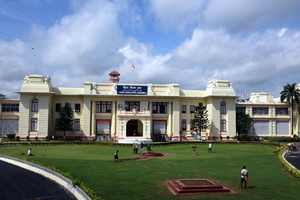SC Collegium recommends elevation of Justice Vaidyanathan as Chief Justice of Meghalaya HC
New Delhi, Nov 3 (IANS) The Supreme Court Collegium, headed by Chief Justice of India D.Y. Chandrachud, has recommended the appointment of Justice S. Vaidyanathan as the Chief Justice of the High Court of Meghalaya.
Justice Vaidyanathan was appointed as a judge of the Madras High Court in October 2013. He is the senior most puisne Judge in his parent high court.
Before his elevation as a judge, he got enrolled at the Bar in 1986 and practised at the Madras High Court and various Tribunals. His area of practice was labour, service, criminal and company matters.
The SC Collegium noted that during his tenure of 10 years as a judge of the high court, he authored 1219 reported judgments, of which 692 were delivered during the last 5 years.
“He has acquired considerable experience in dispensing justice in one of the largest high courts in the country…He is a competent judge with humility, judicial temperament and unimpeachable integrity,” it added.
In a statement released on Thursday, the SC Collegium said the Madras High Court which is one of the largest high courts in the country, is presently represented by only one Chief Justice among the Chief Justices of the High Courts.
“The Collegium resolves to recommend that Mr Justice S. Vaidyanathan be appointed as the Chief Justice of the High Court of Meghalaya,” it added.
A vacancy in the office of the Chief Justice of the High Court of Meghalaya has arisen consequent upon the retirement of Justice Sanjib Banerjee on November 01 this year.
The Memorandum of Procedure relating to the appointment of the Chief Justice of a High Court provides that “a fair representation shall be given to various high courts for the selection of Chief Justices. For purposes of such selection, inter-se seniority of puisne Judges will be reckoned on the basis of their seniority in their own high court. The consideration for the appointment of Chief Justices shall be based on the criterion of seniority subject to merit and integrity.”
–IANS
pds/dpb




